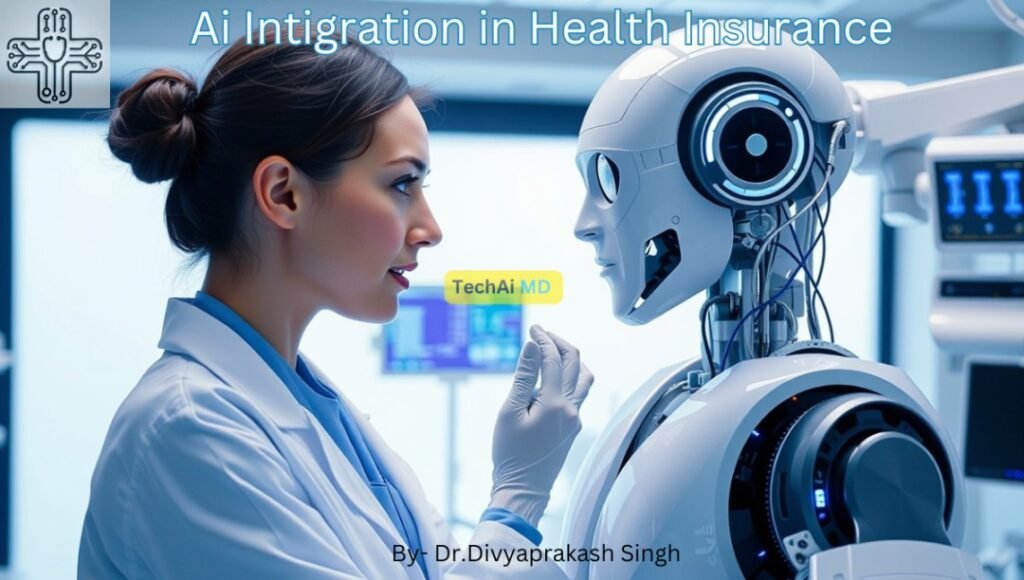Health insurance, as often deemed quite a tedious and complicated process has started to undergo substantial transformation courtesy Artificial Intelligence.
From custom made plans to faster claim fulfillment, AI intervention is indeed bettering the industry for the average man.
Let’s take a step back before further discussing the issues at hand and look into the history of AI in health insurance.

AI’s history in health insurance started with simple algorithms analyzing claims data.
With time, the introduction of more machine learning progressed the field of health care further, allowing for predictive analytics, monitoring fraud as well as creating personalized experiences for the consumers.
As of today, the health insurance industry is undergoing changes courtesy of AI.
How AI Benefits The Common People

1. Individualized Policies
AI looks into a person’s health data: including a person’s lifestyle details and medical records, and generates personalized policies.
This then increases the number of better suited specific policies to better help the client.
These would then create lower average monthly costs for consumers with healthier lifestyles.
For example a non smoker, with no chronic diseases would be placed in a lower risk profile bracket and thus the insurance would be cheaper for them as compared to someone who has a higher risk profile.
2. Simplified Claiming Processes
Those days are long gone where claim submission would require you to wait for extended periods of time to get it approved.
Claim approval processes have become extremely simplified due to AI assistance as it adopts the following measures:
It ensures that all documents are legitimate.
It has the ability to identify diseases.
It ensures the requested amount is settled.
These measures have in turn lowered challenging forms of interaction with the consumer ensuring that the reimbursements received are given within a shorter period.
3. Predictive Management
- AI once again has built upon AI as this evolves the management and prediction systems of health risks policyholders may be prone to.
- Encourages preventive care using health apps and wearables.
- For example, AI could detect early indicators of hypertension and offer interventions before they become an expensive problem.
4. Fraud Detection
AI uses complex algorithms that identify patterns of fraudulent activity, saving insurers money and ensuring fair premiums for all people.
5. Improved Accessibility
AI-powered platforms make insurance more accessible to underprivileged groups.
Reduce costs through efficient operations.
Inclusive plans for persons who were previously denied healthcare..
Myths vs. Facts: AI in Health Insurance
| Myth | Fact |
|---|---|
| AI eliminates the need for human assistance. | AI enhances human efficiency but doesn’t replace personalized support. |
| AI in health insurance is only for tech-savvy users. | Most AI-driven tools are user-friendly and accessible to everyone. |
| AI prioritizes profit over people. | AI ensures fairness by offering tailored policies and detecting fraud. |
AI’s Role in Different Areas of Health Insurance
| Area | ✅ Benefits with AI | ❌ Limitations Without AI |
|---|---|---|
| Claims Processing | ✅ Faster approvals, fraud detection | ❌ Delays, manual errors |
| Policy Customization | ✅ Personalized coverage | ❌ Generic plans, higher premiums |
| Risk Prediction | ✅ Early health alerts, preventive care | ❌ Missed opportunities for intervention |
| Customer Support | ✅ 24/7 chatbot assistance | ✅ Benefits of AI |
Future of AI in Health Insurance
This will cause AI to be deployed for far more than just making life easier, enabling better systems at lower costs across the board.

Dr. Sergei, one of the instructors during my clinical rotation, would say, “AI is for not just making work faster but building a whole system of care which is lower in value.” There is more than meets the eye:
1. Wearable Integrations
This will allow health and life insurers to tailor life insurance policies and products according to customer needs in real time through regular information updates via connected devices.
2. Voice Recognition for Claims
Well, in real life you can interact and ask questions about insurance issues, and so will voice-based AI assistants for claims and inquiries.
3. Universal Accessibility
So yes, everywhere there is an urban or a rural setting, AI will allow life insurance inclusiveness across the globe at a reasonable cost.
Conclusion
The Tech AI in health insurance will be able to do this – revolutionize healthcare within the reach of every individual as technology, rather than a complex alternative.
Making healthcare more straightforward, more secure and more egalitarian.
Every modification brings with it the transformation of perceptions that surrounds health insurance: increased applications response time, customized insurance, prevention-Oriented medicine etc.
Research References
Calvin W L Ho a, Joseph Ali b, Karel Caals c




